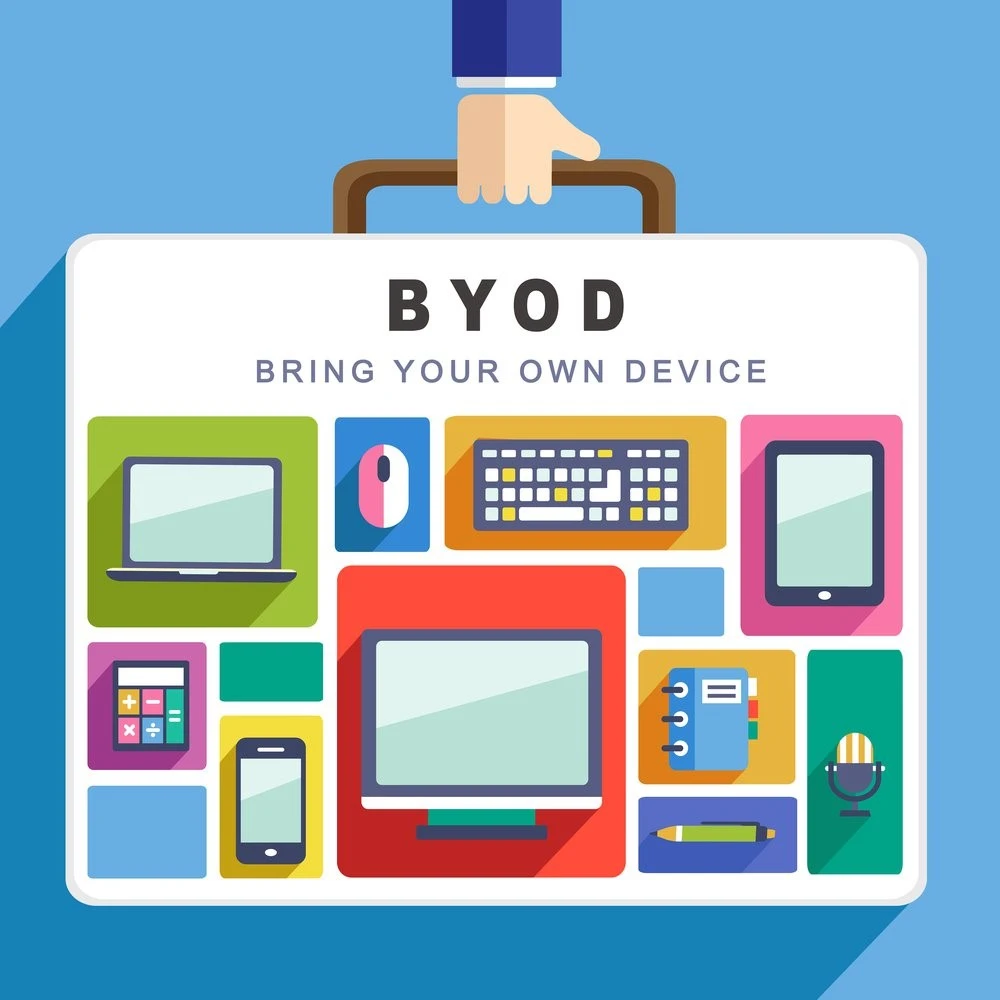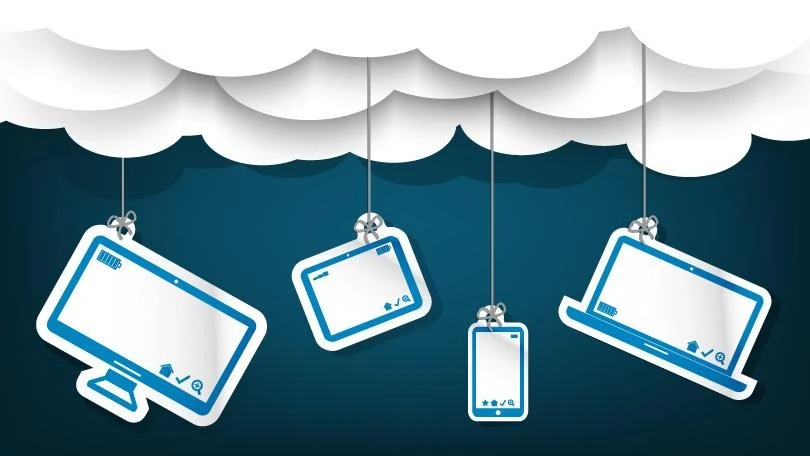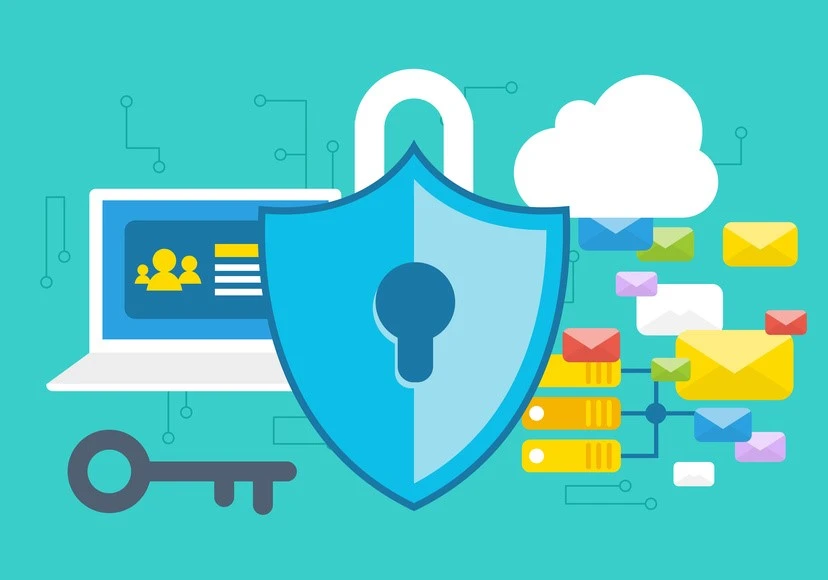The millennial workforce has changed the way organisations operate, by making them more employee-centric rather than business-centric. Today’s millennial workforce has challenged the pre-conceived notion of how organisations operate, how they treat employees and how they form policies.
Subsequently, people are looking to work for organisations that help them fulfil their professional goals without compromising with the work-life balance. Perks like flexible hours, transportation, work from home, etc. are asked by most employees and organisations have started formulating policies to accommodate such requests.
For an organisation, BYOD is a unique policy to implement. It is a cost-effective option, as companies don’t have to invest in IT assets. SMEs in particular can benefit from BYOD policies significantly. BYOD also makes employees more responsible towards their assets.

On the flip side, BYOD does pose significant security risks. Since an employee can use their device at home or public hotspots, it opens them up to network vulnerabilities. Consequently, companies with BYOD policies need to invest in reliable security solutions to address the vulnerability issue.
Irrespective of the treats posed by BYOD, it is a trend whose popularity is shooting high. The global market for Bring Your Own Device (BYOD) and enterprise mobility is expected to reach 73.30 Billion USD by 2021 and the Asia Pacific arena is expected to be the fastest contributor in the future.
Given the growth BYOD will enjoy in the next few years and the various advantages such a policy can bring about, it is advisable for an organisation to consider implementing BYOD in the future. With that in mind, here’re some ways to adopt the BYOD policy while ensuring complete data security.
Adopt Data Protection Techniques
By allowing your employees to bring their own device at work, you open up your company to potential security risks. Employees can access malicious websites in their personal space or on public networks and these threats can permeate into the organisation’s network.
Not only such threats corrupt data, but also cause data leak which would be disastrous for a company. To prevent this, security measures have to be in place on employee-owned devices. This includes security solutions, antivirus and secure networks that can protect organisation data and assets from being compromised.
Since your employees can access company data on their own devices, it is important to identify and regulate what data is accessed, what is stored and what is passed through BYOD devices. This will prevent chances of data theft and leaks.
Additionally, a company should also set up compliances that employees adhere to, which will protect sensitive data. Security features like remote wipe and digital rights management can go a long way in limiting how far information can spread outside of the organization, especially when these devices are lost or compromised.
To curb information misuse, corruption and leak, organisations can deploy data loss prevention techniques and technology. Data Loss Prevention (DLP) is a technology that many organisations employ to ensure that their employees and users don’t send critical information outside the internal network.
DLP software helps organisations protect confidential information through database fingerprinting and exact file matching. Its pre-built categories consist of rules and dictionaries for credit card numbers/PCI protection, HIPAA, etc.
With DLP, organisations can identify, classify and tag sensitive data and monitor activities surrounding that data. Additionally, a comprehensive DLP solution can help you see and track your data on endpoints, networks and on the cloud.
Migrate to Cloud Storage
If an employee brings his/her device to work, there’s a certain amount of memory storage space that he/she would need to manage work files. Depending on your work flow, this space could range from a few megabytes to an entire terabyte.
Since employee devices contain their personal data as well, this could lead to shortage of space for both work and personal data. Having to share work files with personal files on a device can thus become a deterrence to BYOD in the workplace.
To ease this pain point, a company can offer cloud storage for all work files. An employee can access and store his/her work files on the cloud, leading to reduced memory consumption on device.

There are added advantages of having cloud storage for your organisation. Data gets synced and backed up on a regular basis and can be accessed from anywhere and anytime.
Train Your Staff
It isn’t just enough for your employees to bring their devices to work, you also have to make sure that you and your employees are on the same page regarding BYOD policies. Your employees should be aware of risks posed by networks outside work and the chance of data leaks. Any negligence on their part would be potentially problematic for an organisation.
To keep their work data safe, employees should ensure that their devices are protected by respectable antivirus software. Different applications in an employee’s device should also come with unique password protection to ensure that an unknown person cannot access data. Password protection on all applications also ensures multi-level protection, making unlawful access difficult.
Set Password Policies
The importance of password protection on devices cannot be stated enough and it’s something your employees must be aware of. Most people set passwords on their phones and laptops to prevent others from snooping and accessing private information. Set a mandatory password policy for all devices wherein employees will have to abide by a complex alphanumeric password, instead of a four digit one.
Employees should also ensure that their online accounts are password protected. In the case of BYOD devices, it is advisable for employees to not opt for the “Remember Password/Details” option on a website. This way, they can prevent hackers from getting into their online account easily. Otherwise, hackers can easily introduce harmful code/viruses into an online account and make it spread through the organisation’s network.
Suggested Read: Best Open-Source Password Managers for Team
Define Encryption Policies

While personal devices with password protection are difficult to access, should the password be compromised, there’s no telling how much data can be exposed and leaked. Employees can be lax when it comes to encrypting their own devices which puts data at severe risk from hacks.
Ensure that all employee-owned devices come with mandatory encryption, either on the whole device or limited to work applications. Also ensure full-disk encryption, removable media and cloud storage for your whole organisation. This will ensure data security in case of theft or leak and will prevent third-parties from accessing confidential data.
Setup Guidelines for Acceptable Software Usage Policy
Often, employees can install certain applications and software on their devices that are potentially harmful. To ensure that such software doesn’t jeopardise your organisation, you can install guidelines about which software can be used by an employee on their device. Such software can range from antivirus software, games, browsers and file sharing apps.
Audit BYOD Devices
Auditing your organisation’s BYOD devices will inform you of what applications and software your employees are using on their system. This will inform you of potential threats, vulnerabilities and breach of policy, if any.
Make sure that BYOD devices can be audited as it is paramount to meeting corporate obligations. Losing crucial organisation files from employee devices due to leaks or corruption can often cost lakhs or even crores of rupees in lost capital.
Use IT asset management software and mobile device management (MDM) software to incorporate BYOD devices and schedule regular audits of the same. Assessing your employee’s devices regularly is made easier with such solutions.
In the long term, BYOD is definitely the way for any organisation to go. It’s cost effective, space effective and empowers employees at work, by giving them more flexibility. Before implementing BYOD at your organisation, invest in a good security solution for protection and see the wonders BYOD does for your company’s functioning.
A self-confessed pop-culture enthusiast, he loves everything to do with movies, comic books and travelling. Studied at Christ University Bangalore with a triple major in Journalism, Psychology and English, he has been working as a technical content writer over the last few years. After pursuing MBA from T... Read more






















